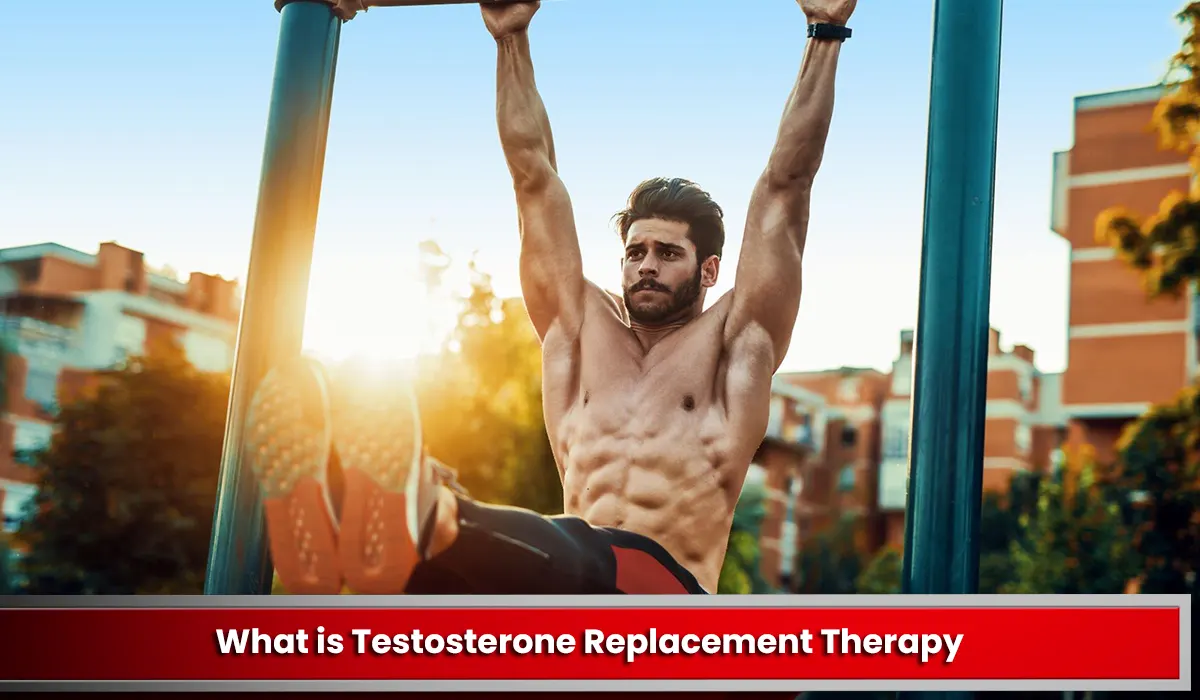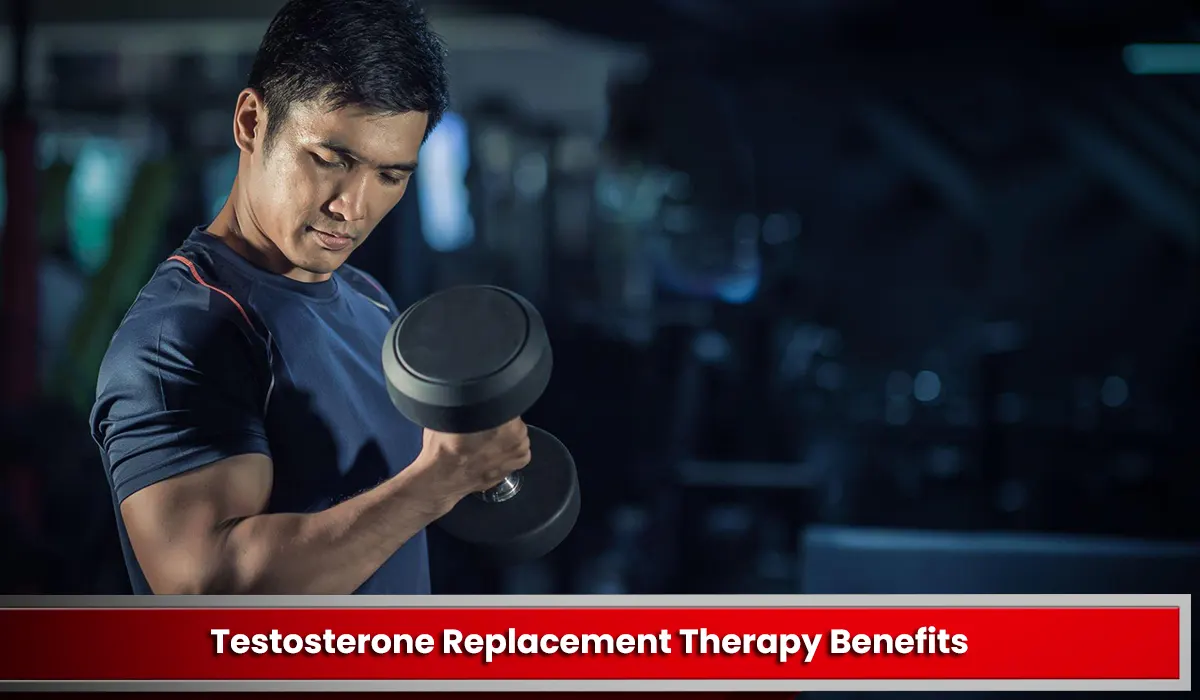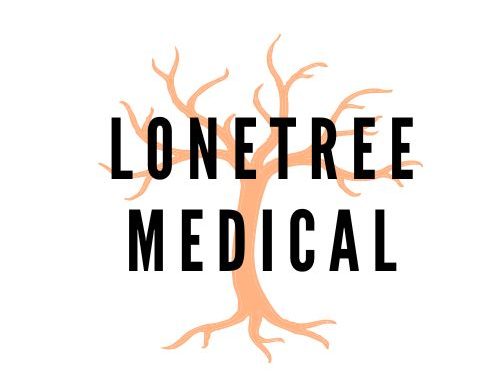When you first start researching TRT, you may become overwhelmed by the sheer volume of data, possibilities, debates, benefits and drawbacks, studies, and so on. It’s a broad topic. Furthermore, because it is a $1,8 billion industry, marketing strategies play a part.
We have your back.
What is Testosterone
First and foremost, some basics. Testosterone is the primary male sex hormone produced in your balls. It is really what identifies you as a man. Testosterone controls numerous aspects of your life, including physical bulk and face shape, as well as sex drive, mood, and aggression.
In the bodybuilding field, testosterone is regarded as one of the most significant muscle-building hormones. Testosterone is a steroid hormone, which means it is produced in another part of your body (in this case, your testes) and then transferred to target tissues for utilization. The body transforms testosterone into estrogen, the second most significant female sex hormone that regulates many aspects of a woman’s life, including bone density, mood, and sexual desire. Testosterone also plays an important role in many men’s health and well-being, including libido and muscular mass.
What is Testosterone Replacement Therapy

Testosterone Replacement Therapy is abbreviated as TRT. It’s a treatment that has been around since the 1930s, when scientists produced synthetic Testosterone. It is a subset of the larger treatment category known as HRT (Hormone Replacement Therapy).
Certain hormone deficits can lead to health risks, unstable conditions, and a general decline in quality of life. If your body naturally reduces or stops generating a specific hormone (endogenous production), you can fill the hole with external therapy. It’s a product approved by the FDA and Health Canada that your doctor can prescribe. It’s also thoroughly studied.
Reasons to Start TRT
If you’re thinking about TRT, you’re probably thinking about it for a reason. The good news is that you testosterone pills side effects bodybuilding are not alone in your feelings. The most common reason for men to utilize TRT is hypogonadism, which affects around 30% of ALL guys worldwide, aged 40 to 79. That’s just the most typical cause.
Hypogonadism and Low Testosterone
The term hypogonadism refers to your body’s inability to produce enough Testosterone. It can be hereditary, develop over time, be caused by anabolic steroid addiction, or be triggered by mental issues, an unhealthy lifestyle, or even stress.
Age to start Testosterone Replacement Therapy
The short answer is that no age warrants required TRT. Though, in your 40s, you are more likely to experience the symptoms of low Testosterone and, as a result, consider TRT.
The long answer is that your testosterone level is closely related to your age. When it begins to fall rapidly, the range is 35-44. Here’s an example:
NOTE: TESTOSTERONE LEVELS DECLINE WITH AGE
So, does this mean you can’t have TRT in your twenties? Of course, if your Testosterone levels are significantly lower than normal.
Other reasons for TRT
“Oh, I have depression and social anxiety, I need TRT,” or “Man, my sex life has been a nightmare for the last six months, I need TRT,” are not acceptable.
Low testosterone levels are the only reason to begin Testosterone Replacement Therapy.
There are various articles on the Internet that provide lists similar to this:
- Depression;
- a lack of libido;
- Loss of Muscle Mass;
- Balding;
- Erection problems;
- decreased bone mass;
- Body fat percentage rises…
So on and so forth. Those articles are written with one objective in mind: to get your clicks and set up an appointment with the clinic that provides the information.
- You might have a low libido because SOMEONE you married years ago grew weight and shouts at you a lot.
- Depression can arise trenbolone suspension as a result of a poor work-life balance.
- Osteoporosis can lead to a loss of bone density.
- You are genetically susceptible to baldness, and all men in your ancestry were bald by their forties.
- Your muscle mass may deteriorate as a result of your everyday activities, which include walking from bed to the kitchen, your car, your office chair, and back, with little exercise and 90% of your time spent sitting on your buttocks.
None of these are good reasons to start TRT, but they are all good reasons to get your Testosterone levels checked. It’s simple stuff, but it’s routinely misrepresented in order to convince more people to take TRT. Consider the number of private clinics that offer it.
Testosterone Replacement Therapy Benefits

The most obvious benefit is that it aids in the treatment of low testosterone levels. In practice, it means as follows:
Sex Drive Boost
The effects of low Testosterone on libido have been established in various studies, including this one published in The Journal of Clinical Endocrinology & Metabolism. At this point, it’s practically impossible to deny.
Furthermore, TRT has been demonstrated to alleviate the disease. A 2019 study that summarizes the findings is available here. Even better, TRT has been demonstrated to aid in the treatment of erectile dysfunction. In practice, this means:
- Your erections will improve and become easier to keep;
- It gets easy to achieve an erection in the first place.
- Your libido drive and sexual desire return to normal;
- Your bedroom performance improves, and you may be able to endure for a longer period of time (a bit, but still).
If you’re between the ages of 25 and 30, you might underestimate the significance of these advantages for 40-50-year-old males. Particularly if they’ve spent their entire life cycling AAS with no proper PCT or ancillaries.
Mood and Self-esteem
Although testosterone has been found to boost self-confidence, don’t expect it to turn your introverted self into a walking magnet for females.
According to the same study, there is no link between increased Test levels and the frequency of sexual intercourse.
Keep your expectations in check, and you’ll get:
- lowered social anxiety
- Small chat is simple to initiate.
- It is easier to suppress dread and anxiety when responding to antagonism.
- You are more confident in your achievements and decisions.
- Making a decision and sticking to it is easier.
Just don’t overdo it; it’s not healthy and might lead to melancholy due to unrealistic expectations of your performance. Another study discovered a link between it and testosterone levels.
Better Performance in the Gym and Less Fat
Isn’t that the whole point of using steroids? TRT, on the other hand, operates in the same manner, with one important exception:
TRT Testosterone levels rarely exceed 200mg, yet the “cycle” might span months, if not years. TRT dosages of Testosterone rarely surpass 200mg, and the “cycle” can last months, if not years. Bodybuilding doses of Testosterone can range from 300 to 700, and 1-1,5g of Testosterone EW in short cycles; TRT doses of Testosterone rarely exceed 200mg, and the “cycle” can last months, if not years.
Our Testosterone in Enanthate Ester instructions can be found here. All of the proofs and data are linked. The performance benefits of TRT are identical – albeit slightly less pronounced:
- Muscle development;
- Increased strength;
- Increased endurance;
- Improved pumping impact;
- Fat tissue shrinks.
Another crucial component is fat tissue growth: the more Testosterone you have, the slower your fat tissue grows.
The resulting decrease in Estrogen lowers your chances of acquiring “feminine” adipose tissue locations, such as on your tummy, breasts, and hips.
This study shows a direct link between testosterone levels and fat distribution.
These are the primary benefits of TRT. It is constantly being researched, so potentially more topics, such as COPD, will be added to the list in the future (pulmonary illness treatment).
Official or Self-Prescribed TRT?
Even while it is legal in most countries, the process itself can be… Not exactly what you require. Some of the reasons why people prefer to self-prescribe TRT are as follows:
- The cost of black market testosterone is less than that of FDA-approved TRT gel components.
- Depending on where you live, collecting all of the paperwork needed to begin official TRT may be prohibitively expensive.
- Even ordinary doctor’s visits can be expensive for some people due to disparities in income, insurance, and so on.
- Official TRT may not be sufficient for your goals.
- Due to age, analysis results, limitations, legal concerns, and other aspects, some doctors may refuse to administer TRT. Nowadays, half of medicine is paperwork, and some people refuse to deal with it.
Money, bureaucracy, and the law. The method’s three pillars “Fuck it, I’ll prescribe it myself.”
It is critical to remember that there is no practical difference between self-prescribed TRT and doctor-recommended TRT. Here’s a study that shows how minor the changes are.
Learn more about the compounds you may need before deciding on the latter.
Also, don’t start hating on hospitals (it’s never a smart idea). Health Canada offers nice-wrapped warnings about dangerous pseudo-TRT drugs on occasion. Some are poison, while others are anabolic steroids disguised as something else.
Most AAS will be excessive if your goal is a basic TRT.
Is Testosterone Replacement Therapy covered by Insurance?
Testosterone replacement therapy is a prescription that is sometimes reimbursed by insurance. The sort of coverage you receive will be determined by the type of plan you have, the company that offers your insurance, and the exact benefits package in which you are enrolled.
The first step in determining whether testosterone replacement therapy is covered by your insurance coverage is to contact your employer’s human resources department or your health care provider and inquire about the types of treatments covered under your plan.
If testosterone replacement therapy is not covered, you should contact your insurance provider to see if there are any alternative treatments available. Then you must decide whether or not it is worthwhile to pay for the treatment out of pocket.
Testosterone Replacement Therapy Cost
The cost of testosterone replacement therapy varies depending on the type of treatment required, the amount used, and the frequency with which it is required. The cost of a TRT might vary depending on a number of things. The first consideration is your location. Because each country has its own currency, the cost of TRT will differ by country. Second, the price will differ based on the sort of treatment you require. Third, the cost of TRT varies according on how much you use and how frequently you require it. The cost could be as low as $20 per month or as high as tens of thousands of dollars per year.

